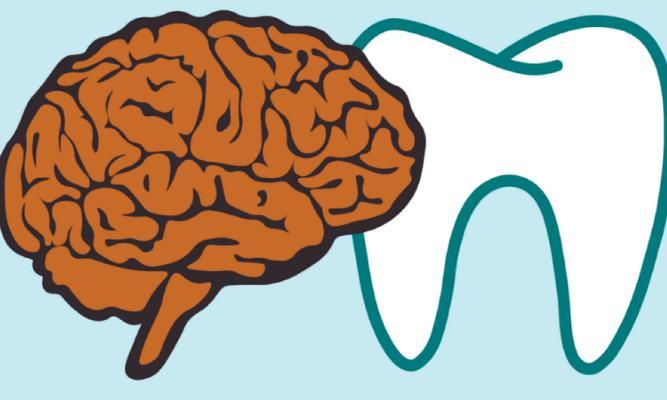According to a new study, an increased increase in cerebrovascular disease may be due to a genetic predisposition to dental diseases. As evidence for cerebrovascular disease, the researchers used the presence of white matter hyperintensity, which is cumulative damage to the white matter of the brain. Magnetic resonance imaging (MRI) scan results showed that people genetically predisposed to edentulism or caries experienced a 24% increase in white matter hyperintensity in the brain.

White matter hyperintensity indicates potential problems with balance, mobility, and memory. For the participants, the researchers compiled microstructural damage scores. Microstructural damage is the degree of change in the fine architecture of the brain compared to images on a conventional brain scan of a healthy adult of a similar age.
Data from the British Biobank were used, and the samples came from individuals predominantly from the UK of European origin. They were evaluated for 105 possible genetic variations associated with caries, possible need for dentures, or any form of edentulism. The researchers also noted that when a participant had poorer oral health as a result of genetics, in addition to caries and edentulism, the rate of microstructural damage increased to 43%.
Lead author Dr. Cyprian Riviere, Research Fellow in the Department of Neurology at Yale Medical School in New Haven, Conn., commented in a press release: “Studying oral health is especially important because poor oral health is common and is a highly modifiable risk factor – everyone can effectively improve oral health with minimal time and financial investment.” Dr Riviere also noted the value of using neuroimaging tools such as MRI to assess the impact of oral health on brain function.
Dr. Joseph P. Broderick, professor in the Department of Neurology and Rehabilitation Medicine at the University of Cincinnati and member of the Stroke Control Council, said the findings should stimulate further research, but are not concrete evidence that improving oral hygiene mouth will improve brain health. He noted that genetic factors for various conditions may overlap with those that cause poor oral health. Dr. Broderick said: “Environmental factors, smoking, and negative health conditions such as diabetes are stronger risk factors for poor oral health than any genetic marker—with the exception of rare genetic diseases associated with poor oral health, such as oral malnutrition. or lack of enamel”.
